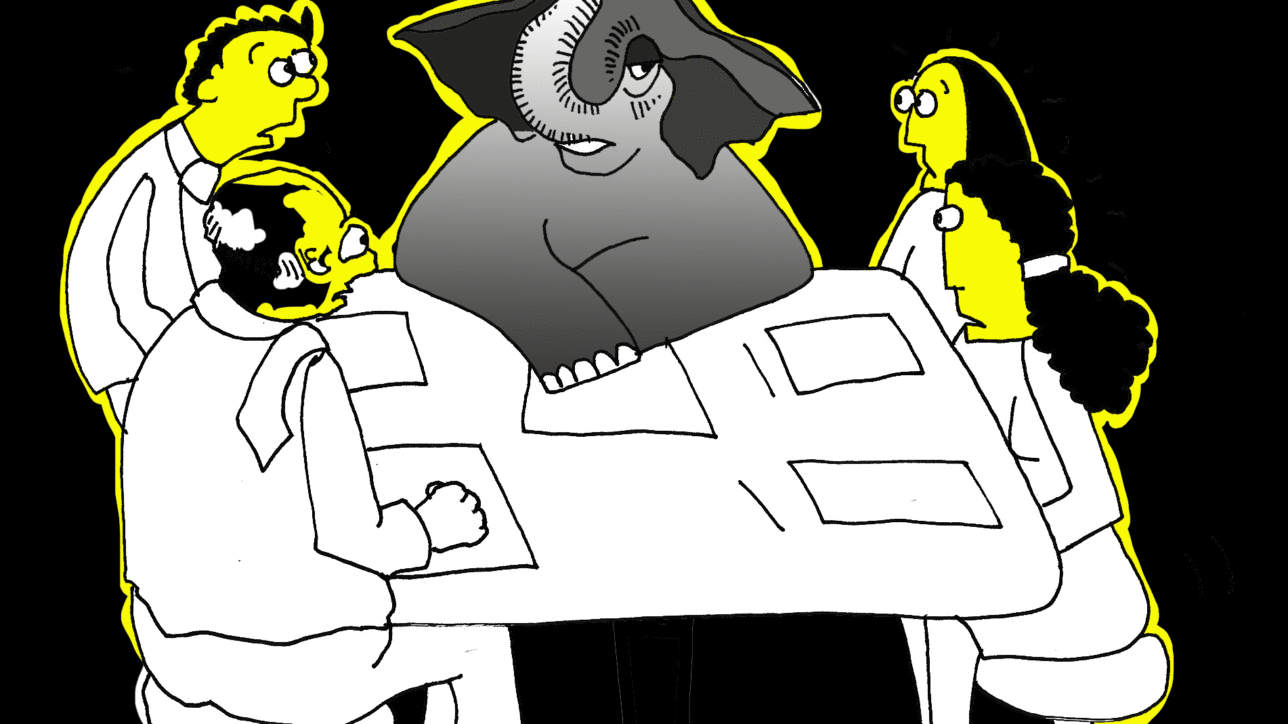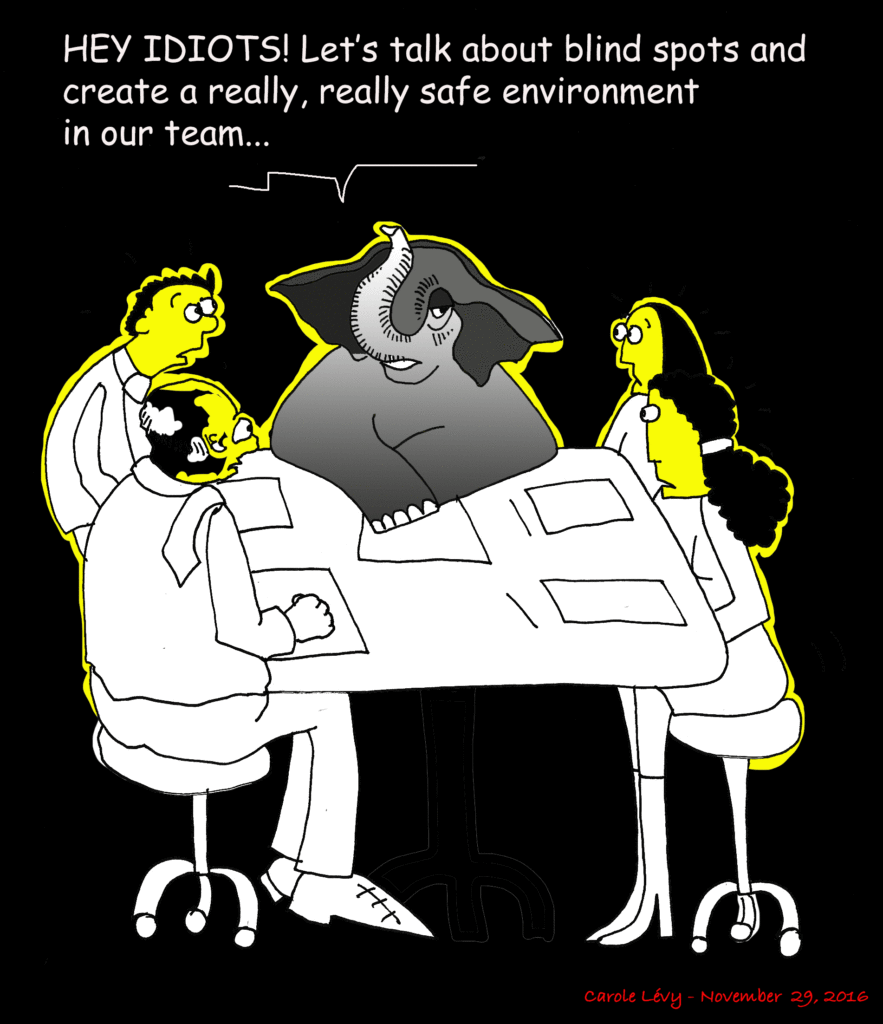Sometimes our personal blind spots, unaddressed by us, can become the elephant in the room for others.
If everyone -except ourselves- notices an important and troubling issue about us, but nobody addresses it because it would be too delicate, uncomfortable, conflictual or politically incorrect, we are subject to becoming the elephant in the room.
This can happen especially if we are in a position of authority, or public scrutiny.
A few years ago, I was presenting at a philanthropic conference in San Diego. The conference room was huge for a very small audience. The sound system wasn’t good and at that time, I had a thick French accent. Since public speaking is anxiety provoking for me, I had diligently prepared for my presentation. When the day arrived, frankly, I was good, in the zone, not even distracted by the participants leaving this big room one after another. There was a group of witty philanthropist women; one looked especially cool and friendly. They seemed to really connect with the work, even though they too began to leave. I thought: “It’s Sunday. Maybe philanthropists don’t really want to work on themselves on Sunday.” After finishing the session (with just a handful of happy participants remaining), I saw the cool woman at the after party and decided to approach her. I was feeling confident and successful. I asked smiling: “Why did all of your group leave?” She looked at me surprised, and condescendingly said: “I know it is going to be hard to hear, but you seriously need to work on your presentation skills. We couldn’t understand one word of what you said.” I felt ashamed and crushed. I had become the elephant in the room.
This could have been the end of my career as a public speaker. However, after recovering from my humiliation, I took her feedback to heart.
That being said, there is zero guarantee at this minute that I am not judged by others for the French accent that I still have, or for other blind spots that I don’t think I have.
Nobody wants to be the elephant in the room and it is certainly a hot button for me. If we want to minimize the possibility of it happening, here is (very broadly) what we can do: 1- Hold the mirror and look at ourselves (kindly). 2- Create a safe and open environment for others to be able to address (kindly) our flaws and weaknesses with us. 3- Accept that being judged by others, fairly or unfairly, is out of our control, and may even be helpful if we pay close attention.
Blind spots aren’t our enemies. They are cracks in the system to see ourselves more clearly. Cracks are useful and necessary, as I suggested in my previous post. Blind spots are gaps in reality probably created and overlooked by our ego and brain limitations, but ready to be embraced by our benevolent and authentic self.
Our benevolent self isn’t obsessed with proving that we are irreproachable. It is longing to grow and thrive. It is curious to know itself better. It finds peace in accepting reality. Therefore, it even accepts being the elephant in the room. Frankly, embracing our blind spots is a gracious strength to develop.
Reflections: How do you approach your blind spots? What do you do when you perceive an elephant in the room? Have you been the elephant in the room? Can you connect with your benevolent self when you discover a blind spot?










Hi Carole,
since age 16 when I went to the USA as an exchange student (year was 1978 I thinks), I’ve pretty much always felt that elephant. Even after moving back to Finland – as, by that time, English was more fluent (but not accent-free) than Finnish was. Moving back, I was really frustrated at first, because I searched for words so I spoke slower, and people I spoke with, had a habit of “ending my sentences”. I told of my frustration to my best fiend and my mom, and they both understood and stopped speaking “for me”.
Maybe it’s my age, but nowadays I hardly bother to speak to others, even when I CAN. Tiring of the effort. Am I old enough to feel that way, in your honest opinion? 🙂
Peace and love to everyone,
Riia
From one elephant to another, though painful, I think it’s always good to discover when we become the elephant in the room. It affords us room to grow and become a different sort of animal. As always, well done, my friend. Food for thought. And marvelous images that stay in our consciousness long after we’ve turned off the computer.